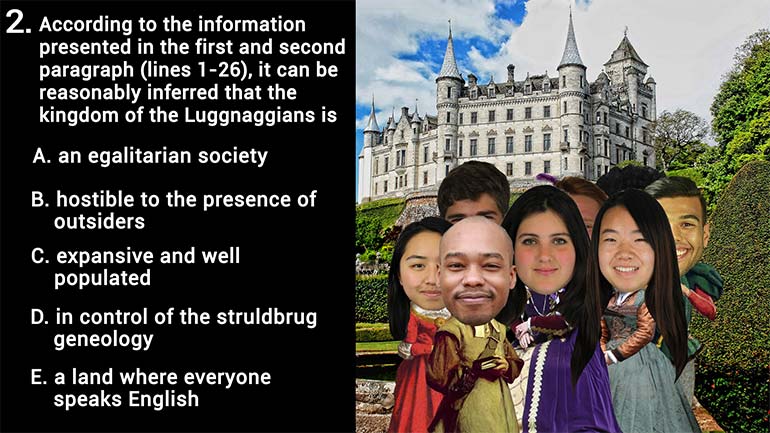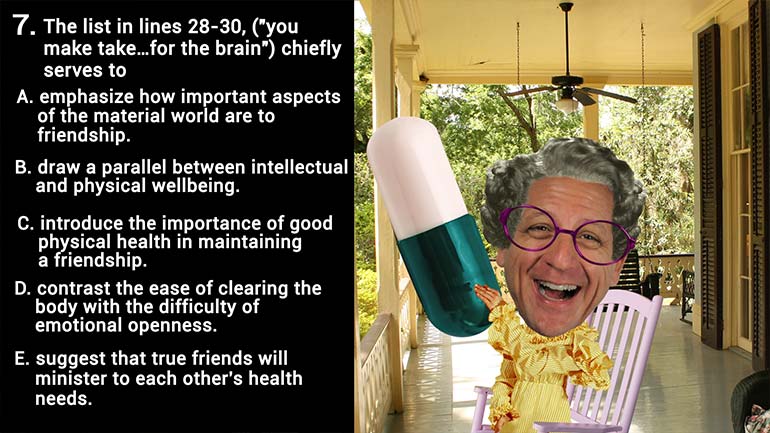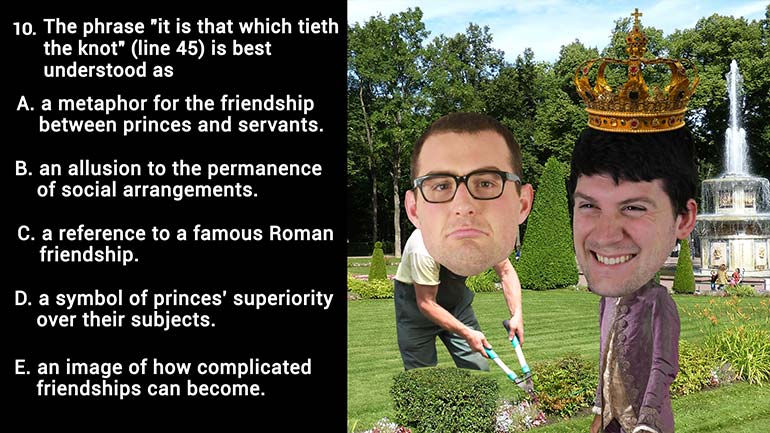ShmoopTube
Where Monty Python meets your 10th grade teacher.
Search Thousands of Shmoop Videos
AP English Literature: Natural Mood 9 Views
Share It!
Description:
The poem's mood can best be described as
Transcript
- 00:00
Sorry Okay AP English Lit People Next question here is
- 00:07
short one The poems mood can best be described as
- 00:19
what that's past tense for what a cow says as
- 00:23
well All right So what is it Well the loving
- 00:25
description the speaker gives to the brook and its strength
Full Transcript
- 00:29
and impulse That thing right there reveals his affection for
- 00:32
the brook which was eventually cemented down You know grammar
- 00:37
police were not around Well the rhetorical questions he then
- 00:40
acts are indignant You know like when shmoop grammarians confront
- 00:45
everyone at the dinner table one night and yell Did
- 00:47
you forget what today Wass Did you not remember It's
- 00:51
my birthday Do I not matter Yeah I've done that
- 00:55
every Thanksgiving I do that to my kids Well this
- 00:57
mix of affection and indignation is best described as AG
- 01:01
grieved So the answer is a there And the loser
- 01:04
ball Well the speaker doesn't suggest any revolutionary changes as
- 01:08
much as he questions the ones that have already taken
- 01:10
place So get rid of B And because he includes
- 01:12
so many rhetorical questions that consort of the past and
- 01:15
present conditions of the brook Well he can't be considered
- 01:18
apathetic either So I get rid of C He's fully
- 01:21
caffeinated The questions he asked are rhetorical like the their
- 01:25
meaning He isn't actually confused about the cinder loads That
- 01:28
thing and nostalgia only captures his tone at the beginning
- 01:32
of the poem on like an eat So that's it 00:01:34.33 --> [endTime] The answer is a agri what
Up Next
According to the information presented in the first and second paragraph (lines 1-26), it can be reasonably inferred that the kingdom of the Luggna...
Related Videos
In line 27, the adjective "inexpressible" is used
The main idea of the second paragraph (lines 24-33) can best be restated that
The list in lines 28-30, ("you make take sarza for the liver…castoreum for the brain") chiefly serves to
The phrase "it is that which tieth the knot" (line 45) is best understood as




